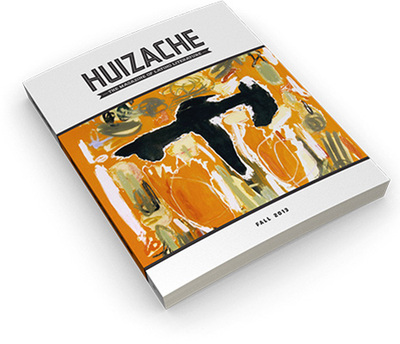ARKOR KOLUBAH
A Touch of Comfort
A woman, advanced in years, tends to her garden of yams, potatoes, herbs, and greens growing next to her rusty zinc house on the outskirts of an isolated village. Her skin bears the wrinkles of her years—the many creases resemble the waves of the ocean as they rush towards the sand. She does not stand; she stoops, and calculates every step. She bends over the garden with care, as if each time she does, she risks breaking a bone. But she does not break any bones. She is too strong for that.
Her hair is not gray any more, but white--as if time hopes to erase even the traces of youthful old age that once thrived in her. Though many say she was never young.
After watering crops, rooting out weeds, and petting the many cats that roam in her yard, she walks to the river to wash her clothes. She carries her washing board and clothes in a metal bucket, and moves as if aided by an invisible cane.
She reaches the river, and to the left of her—next to a bush, she sees a little boy coiled on the bare earth, crying as if nothing can pacify his aching heart. Did he prick his fingers on a thorn?
Beyond the bush, four other children point at the boy, laughing and taunting. The woman remembers the children. Not long ago, they, along with a mob of other kids, showed up at her abode. The bravest of them ran up to her zinc hut to see if they could touch it and run back to the group without being bewitched. Others threw rocks at her cats in the garden. After her black cat squealed, she rushed outside with her broomstick to shoo the kids away. One of the children, a boy with a large upper lip, pointed frightfully at her, and shouted, “Witch!” The mob dispersed, leaving behind only dust, vanishing with the quickness of an apparition.
Why is the child crying? What does he know about pain? He has not felt the lashes of suffering like the woman. He has not been stricken by the despair of infirmity like her. He has not been bent over and made crooked by years of labor like she has. And has he ever, like her, known loneliness and its agony? The anger of betrayal and the sorrow of being shunned?
Time and time again the woman has suffered—from infancy, when her teen-aged parents who could not stand the shame that comes with having a child out of wedlock left her exposed to the elements, to adulthood, when loneliness crept upon her like a cold shiver up the spine. And time and time again she has been comforted. First by the elderly couple who found her in the bush and raised her before they died a too-quick death, and then, always, by the Comforter whose touch transcends time, space, and suffering.
She has learned to sleep away her pain and sorrow, and most of all, to receive the comfort from those transcendent hands.
There’s a song she remembers, but does not know when she learned it or who taught it to her. Nevertheless, it has become intuitive as drinking water when the body thirsts for it.
And as she walks towards the child, she knows what she must do.
She sits beside him, looks in his face, and sees his prominent upper lip.
She puts him in her lap, sings him a lullaby, and watches him fall asleep.
Her hair is not gray any more, but white--as if time hopes to erase even the traces of youthful old age that once thrived in her. Though many say she was never young.
After watering crops, rooting out weeds, and petting the many cats that roam in her yard, she walks to the river to wash her clothes. She carries her washing board and clothes in a metal bucket, and moves as if aided by an invisible cane.
She reaches the river, and to the left of her—next to a bush, she sees a little boy coiled on the bare earth, crying as if nothing can pacify his aching heart. Did he prick his fingers on a thorn?
Beyond the bush, four other children point at the boy, laughing and taunting. The woman remembers the children. Not long ago, they, along with a mob of other kids, showed up at her abode. The bravest of them ran up to her zinc hut to see if they could touch it and run back to the group without being bewitched. Others threw rocks at her cats in the garden. After her black cat squealed, she rushed outside with her broomstick to shoo the kids away. One of the children, a boy with a large upper lip, pointed frightfully at her, and shouted, “Witch!” The mob dispersed, leaving behind only dust, vanishing with the quickness of an apparition.
Why is the child crying? What does he know about pain? He has not felt the lashes of suffering like the woman. He has not been stricken by the despair of infirmity like her. He has not been bent over and made crooked by years of labor like she has. And has he ever, like her, known loneliness and its agony? The anger of betrayal and the sorrow of being shunned?
Time and time again the woman has suffered—from infancy, when her teen-aged parents who could not stand the shame that comes with having a child out of wedlock left her exposed to the elements, to adulthood, when loneliness crept upon her like a cold shiver up the spine. And time and time again she has been comforted. First by the elderly couple who found her in the bush and raised her before they died a too-quick death, and then, always, by the Comforter whose touch transcends time, space, and suffering.
She has learned to sleep away her pain and sorrow, and most of all, to receive the comfort from those transcendent hands.
There’s a song she remembers, but does not know when she learned it or who taught it to her. Nevertheless, it has become intuitive as drinking water when the body thirsts for it.
And as she walks towards the child, she knows what she must do.
She sits beside him, looks in his face, and sees his prominent upper lip.
She puts him in her lap, sings him a lullaby, and watches him fall asleep.
Copyright © April 2018 Arkor Kolubah and Map Literary
|
Arkor Kolubah is a Liberian born writer living in New Jersey. He holds a Masters in English Literature from Rutgers University-Newark and is currently an adjunct professor at Union County College and Middlesex Community College. He is also a Writing Tutor at the Rutgers-Douglass Writing Center. He is currently working on a novel.
|










